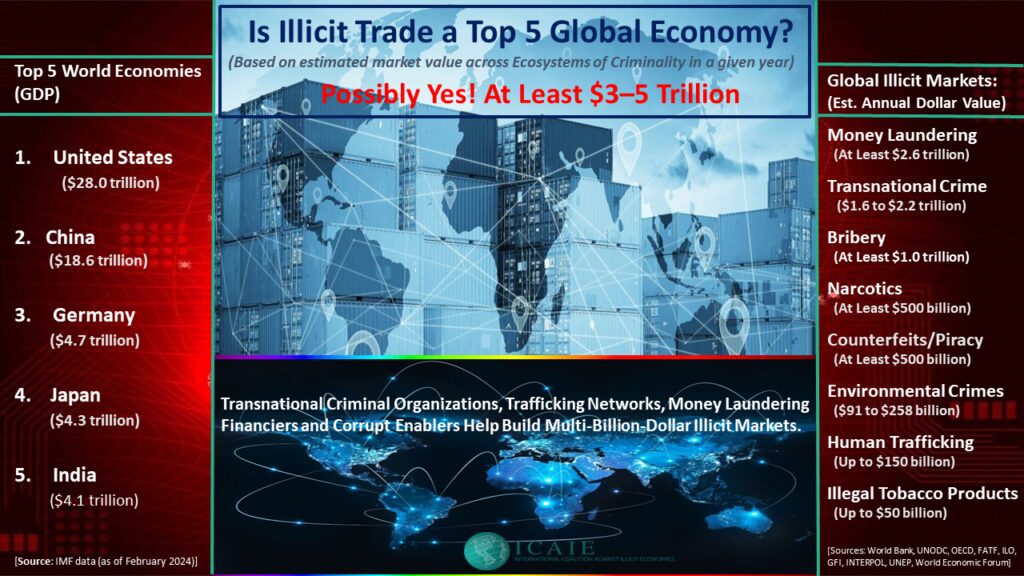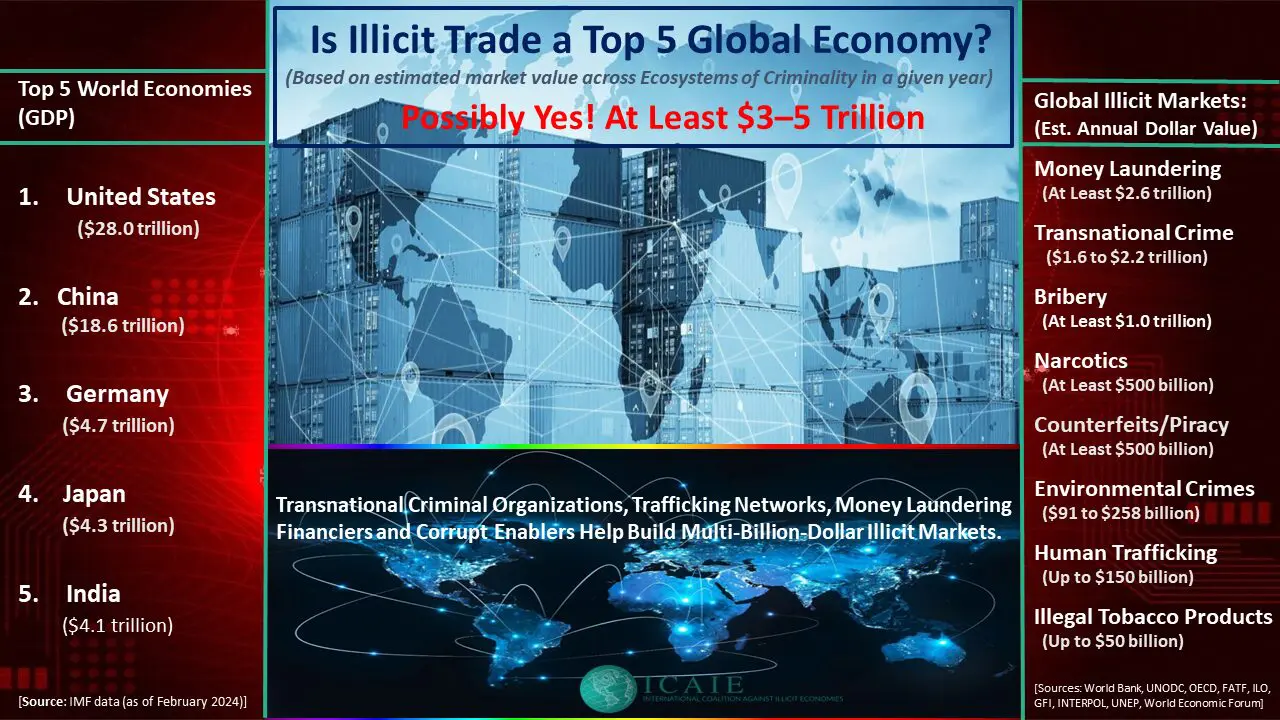Illicit Trade is Emerging as a Top 5 World Economy (GDP) in 2024: Yielding Criminals, Bad Actors, and Threat Networks Between $3-5 Trillion a Year in Illicit Wealth
Across today’s global threat landscapes, criminals, bad actors, illicit networks, and their corrupt enablers exploit vulnerabilities across borders, international trading system, supply chains, retail and e-commerce marketplaces for illicit enrichment, and to diversify, and expand their criminal portfolios and ecosystems of criminality.
Lucrative criminal activities enable and fuel multitrillion-dollar illicit economies include the smuggling and trafficking of narcotics; deadly fentanyl and other opioids; weapons and WMDs; humans; counterfeit and pirated goods; fake medicines and pharmaceuticals; illegal tobacco and alcohol products; illegally harvested timber, wildlife and fish; pillaged oil, diamonds, gold, natural resources and critical minerals; and other contraband commodities.
Such contraband and illicit goods are sold on our main streets, social media, online marketplaces and across the digital world and dark web every minute of every day.
The United Nations, IMF and other leading international organizations have estimated that the dirty money laundered annually from such criminal activities constitutes up to 5 percent of global gross domestic product, or an estimated $3-5 trillion. [Estimate World Economy (GDP) in 2024: $105 Trillion]
Illicit economies are not harmless and can have tremendous human, economic, societal and security costs and consequences.
Illicit economies come with vulnerabilities to peace and security — including corruption, violence, chaos, organized crime, terrorist financing and instability.
Illicit economies are the lifeblood of today’s bad actors, enabling kleptocrats to loot their countries, criminal organizations to co-opt states and export violence, terrorist groups to finance their attacks against our societies, and hostile authoritarian states to finance their malign influence operations and disinformation/truth pollution campaigns.
Illicit economies are pervasive threats that undermine democracy, corrode the rule of law, fuel impunity, imperil effective implementation of national sustainability and economic development strategies, contribute to human rights abuses and enflame violent conflicts.
ICAIE works to advance holistic whole-of-society approaches in order to strengthen the political will in risky markets, confiscate criminally derived proceeds, promote information sharing, coordinate actionable intelligence across borders and develop more innovative and smarter global supply chain solutions to combat illicit pathways.
ICAIE also harnesses our energies to work across the international community towards greater awareness of the harms of illicit economies, partnerships and collective action to tackle these inter-connected market threats that impact us all.
There are no global problems that can be solved by any one partner working alone.
That’s why ICAIE is proud to support public-private partnerships, working to protect global markets and safeguard communities from the pernicious impacts of black markets and the filthy lucre of criminals.
By working together, we can unite against the corruptive influence of today’s bad actors and threats networks that are sabotaging legitimate commerce and the legal economy by draining the swamp of criminality and cesspools of illicit activity, and to ensure justice, safer communities and sustainable peace.
David M. Luna, Executive Director, ICAIE


